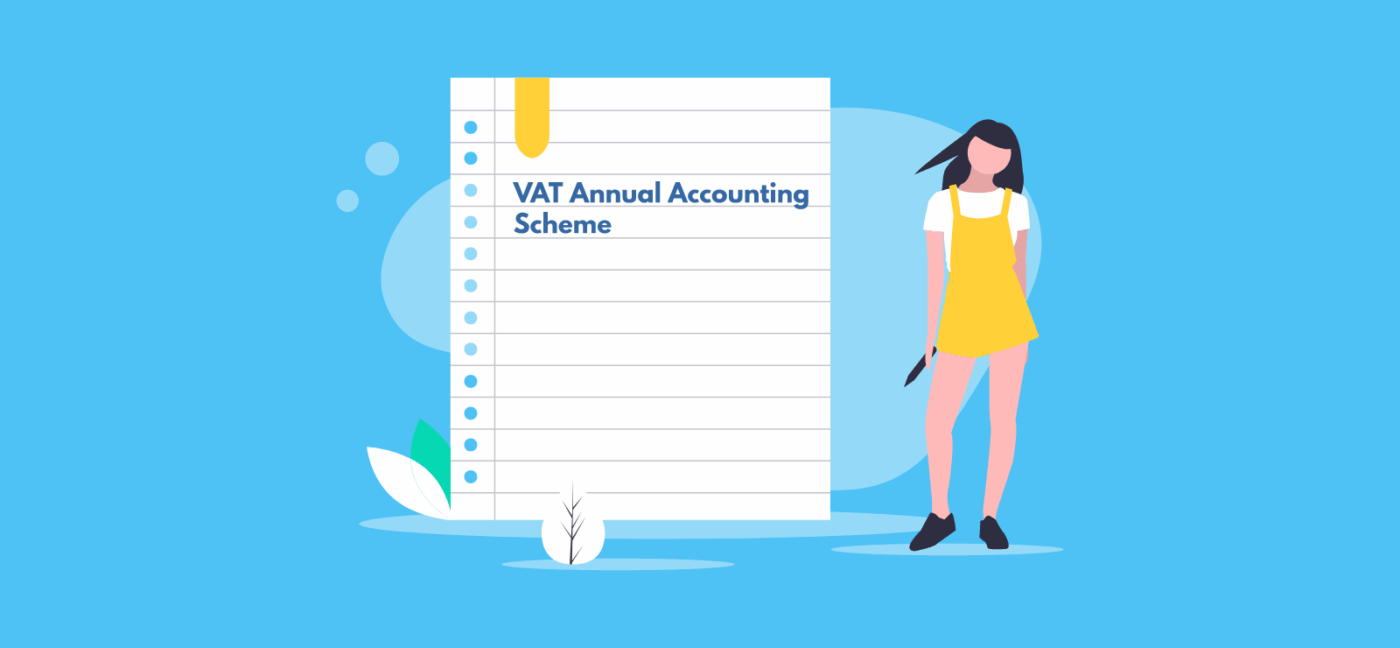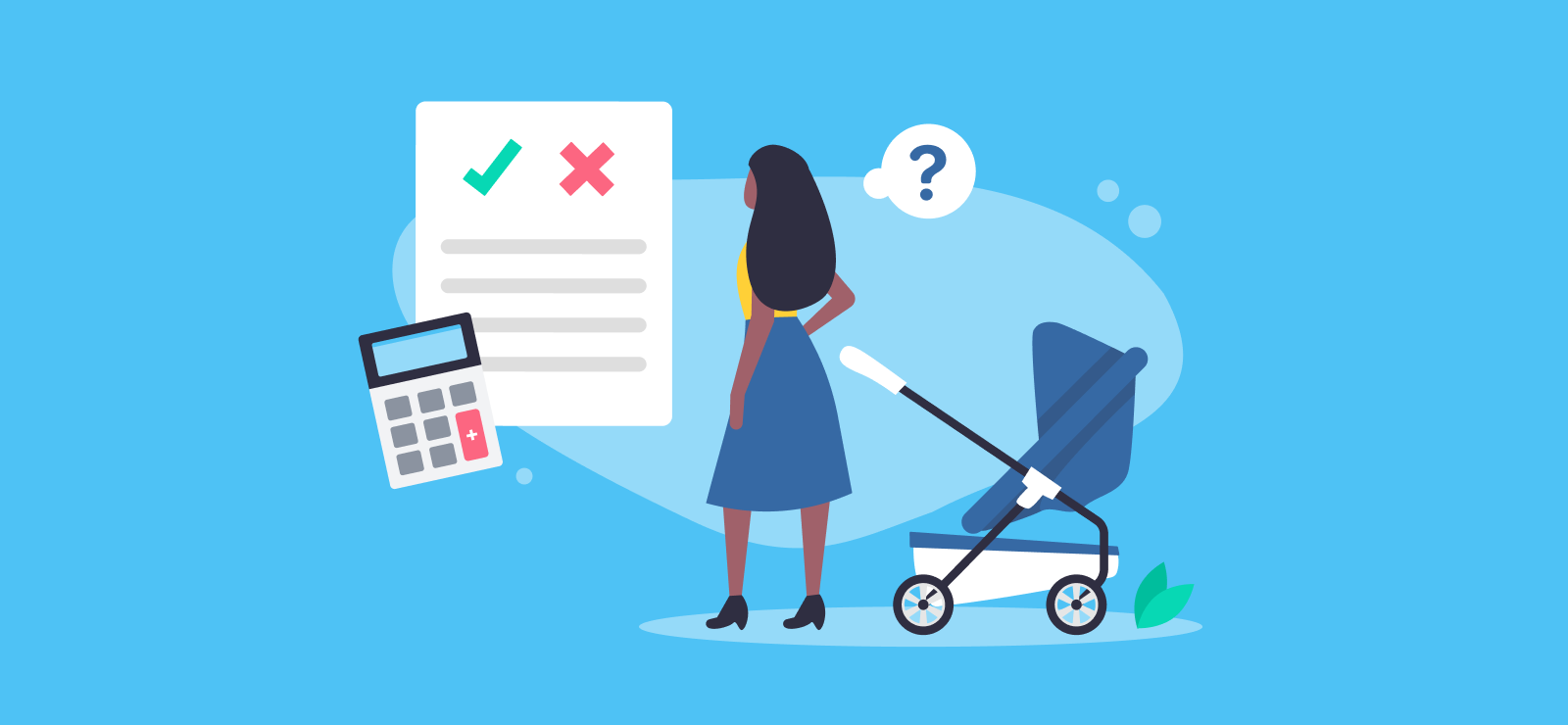

A Guide to the VAT Annual Accounting Scheme
Businesses which register for VAT will normally make VAT submissions four times a year, but the rules are a bit different if you register for the VAT Annual Accounting Scheme.
How the VAT Annual Accounting Scheme works
As the name suggests, you’ll submit an annual return to account for your VAT, but you’ll need to make advance payments towards your bill throughout the year.
What are the advance payments on the Annual Accounting Scheme?
If you register to the VAT Annual Accounting Scheme you can choose to make advance payments in either monthly or quarterly instalments, and a final payment when you submit your VAT return.
The amount you pay for each instalment towards your final VAT bill depends on your VAT return from the previous year. If you’re in your first year of VAT registration, you’ll pay an estimated amount. Each instalment will be 10% of your estimated VAT bill if you pay monthly, and 25% if you make quarterly payments.
The final payment is a ‘balancing payment’ to pay any VAT due once you submit your VAT return for the year. You’ll need to pay the balancing payment within two months of your VAT year ending.
| Payment Intervals | Deadline for Payment | Instalment Amount |
| Monthly payments | The end of months 4, 5, 6, 7, 8, 9, 10, 11 and 12 | 10% of your estimated VAT bill |
| Quarterly payments | Due at the end of months 4, 7 and 10 | 25% of your estimated VAT bill |
| Final payment | Within 2 months of month 12 | A balancing payment if VAT is still owed |
What happens if I overpay?
Don’t worry if you reach the end of your VAT year and discover that your advance payments are more than the final bill. If you overpay your VAT bill, you can apply for a refund.
Who can use the VAT Annual Accounting Scheme?
Your business can join the VAT Annual Accounting Scheme if your estimated VAT taxable turnover is £1.35 million or less for the next 12 months. This figure excludes the value of any sales you expect to make from capital assets.
There are some exceptions though, and businesses can’t use the VAT Annual Accounting Scheme if:
- They left the scheme in the previous 12 months
- They have outstanding VAT returns or payments
- The business is part of a larger group of VAT registered companies
- The business is insolvent
It’s also worth noting that HMRC can force you to leave the scheme if you don’t submit your VAT return or pay your VAT bill on time.
How do I join the scheme?
You can request to join the scheme when you first register for VAT, or at a later date using your online VAT account or by posting a VAT600AA form to HMRC. In some instances you can only apply by post (rather than online), such as when applying for a registration exception.
Can I leave the scheme?
You must leave the scheme if you’re no longer eligible to be in it. For instance, if turnover exceeds £1.35 million, or if any of the other exceptions to eligibility apply. You can also leave the scheme voluntarily if you want to.
Do I have to wait until the end of my VAT accounting period to register for the Annual Accounting Scheme?
You can apply to the Annual Accounting Scheme at any time, although applying in the middle of an accounting period rather than at the beginning can delay the process.
Authorising your use of the Annual Accounting Scheme takes effect from the first day of the period that you make your application. So, if you apply towards the end of your accounting period after submitting the return for that period, there will be a delay.
What should I consider before selecting the VAT Annual Accounting Scheme?
Just like any other business decision, there are advantages and disadvantages to signing up for VAT Annual Accounting depending on your particular circumstances. We’ve outlined a few of the more common considerations below, but your own situation might be different so take advice if you need to!
Potential benefits
- You have an extra month to complete your VAT return and pay the bill
- It can make forecasting and planning more straightforward because you’ll pay a set amount each time
- You won’t need to submit your VAT return as regularly, which can ease some of the admin burden
Potential disadvantages
- You must tell HMRC if your VAT liability is likely to be significantly higher or lower than the previous year
- The payment amount is worked out using the previous year’s return, so if this year’s turnover is lower, you’ll still pay last year’s rate. You won’t be able to reclaim the overpayment until the end of the year.
- It may not be beneficial if you claim back VAT regularly, as you’ll only be able to claim a repayment once a year
What’s the difference between the Annual Accounting Scheme, the Flat Rate Scheme, and Cash Accounting Scheme?
There are some key differences in the way that businesses using these VAT schemes pay their VAT bill:
- Signing up for the Flat Rate Scheme means you’ll pay your VAT bill as a flat-rate percentage of your annual turnover, rather than accounting for the VAT you pay on purchases and collect on sales.
- With the VAT Cash Accounting Scheme, you only pay the VAT on a sale once the customer pays you, rather than when you invoice them. It works for supplier payments to, so you only reclaim VAT that you pay to a supplier once you actually pay them.
- On the Annual Accounting Scheme you’ll need to make regular (either monthly or quarterly) payments towards your expected VAT bill, even though you’ll only submit the return once a year.
You can sign up to the Annual Accounting Scheme and Flat Rate Scheme at the same time, but it’s not possible to use the FRS with the Cash Accounting Scheme.
Do you need help submitting your VAT returns or getting set up on the VAT Annual Accounting Scheme? Our online accountants make sure your accounts work for you. Call 020 3355 4047 or get an instant online quote.
Want to learn more?
Subscribe to our newsletter to get accounting tips like this right to your inbox

Read more posts...

The Accountancy Partnership – Our Positive Reviews
16th February 2026We’re proud of our customers’ reviews here at The Accountancy Partnership The reviews we receive from our customers show how hard we…
Read More
Maternity Pay for Self-Employed People
15th February 2026As a self-employed person you might be eligible to get Maternity Allowance payments for up to 39 weeks. It’s different to Statutory…
Read More
National Insurance for the Self-Employed
14th February 2026If you work for your own self-employed business, then you may need to pay National Insurance on the profits that you earn….
Read MoreConfirm Transactions
The number of monthly transactions you have entered based on your turnover seem high. A transaction is one bookkeeping entry such as a sale, purchase, payment or receipt. Are you sure this is correct?
Please contact our sales team if you’re unsure
VAT Returns
It is unlikely you will need this service, unless you are voluntarily registered for VAT.
Are you sure this is correct?
Call us on 020 3355 4047 if you’re not sure.
MTD IT Quarterly Updates
Your final, end of year MTD Income Tax submission is included in your fee.
You can submit the quarterly updates yourself using Pandle, or alternative bookkeeping software (which we recommend).
However, if you would prefer us to submit these updates, there is an additional fee of £35.00 per month.
Call us on 020 3355 4047 if you’re not sure.
Bookkeeping
You will receive our bookkeeping software Pandle for free, as part of your package.
You can use this to complete your own bookkeeping, or we can provide a quote to complete your bookkeeping for you.
Please select and option below:
Call us on 020 3355 4047 if you’re not sure.

